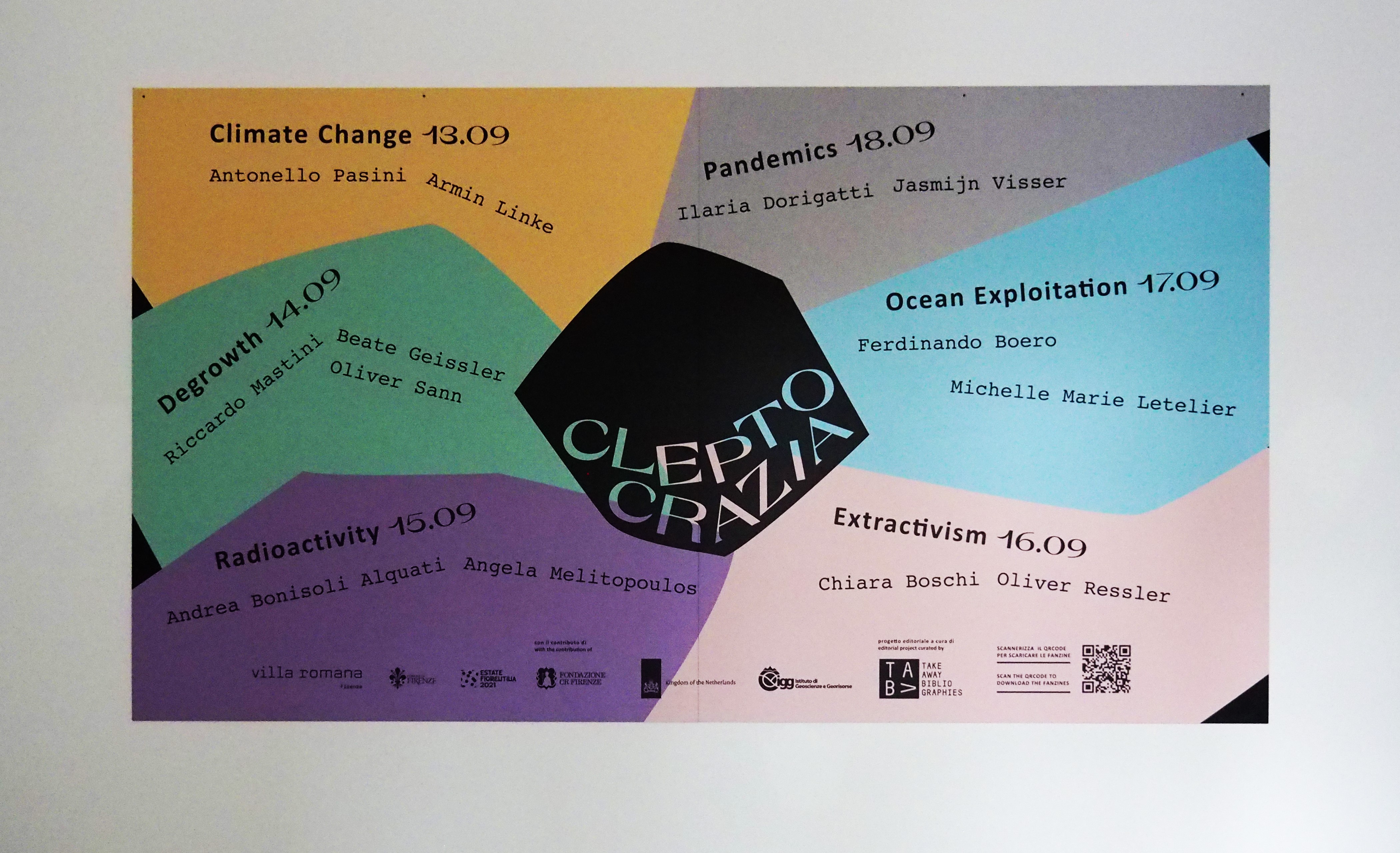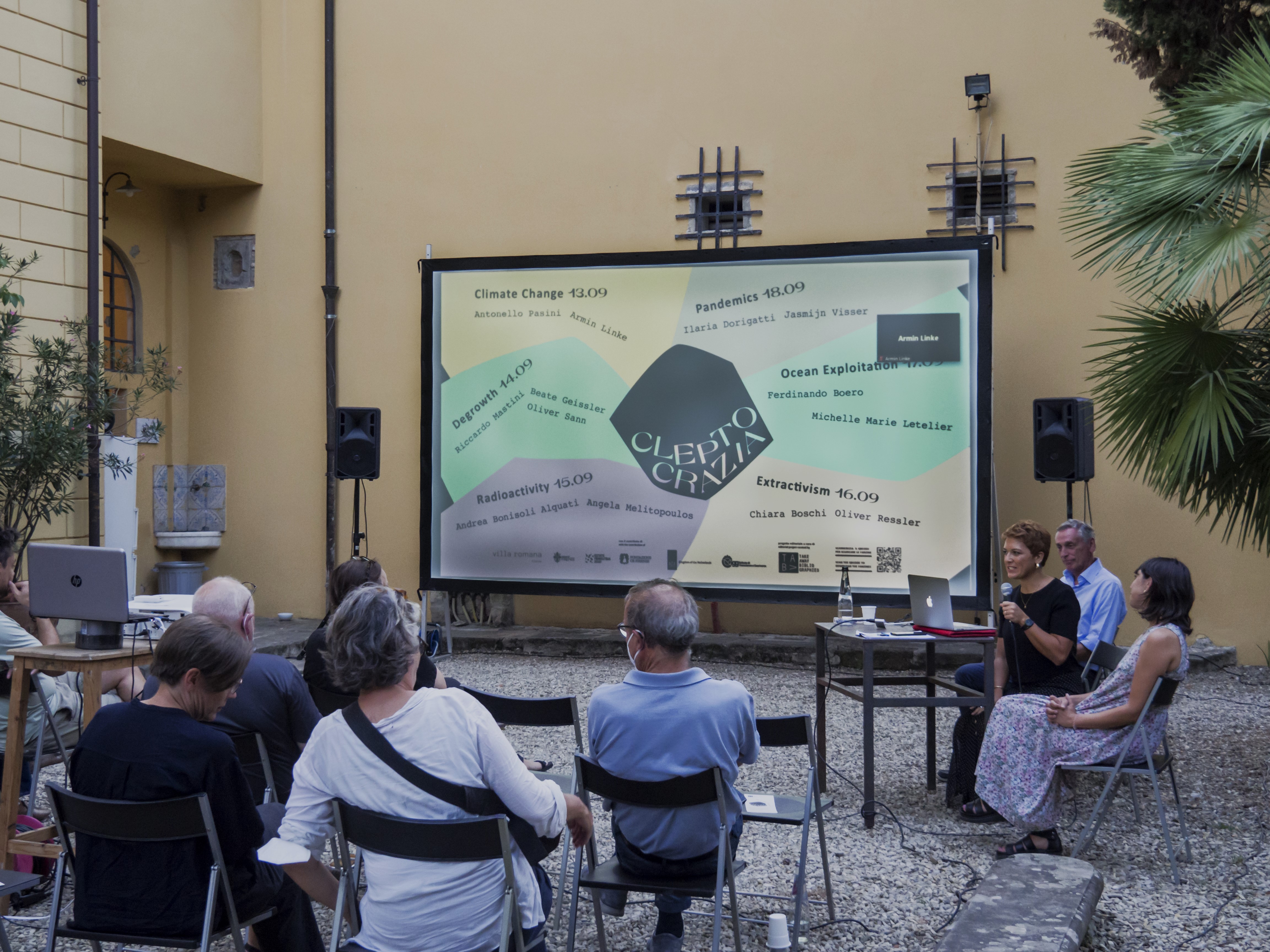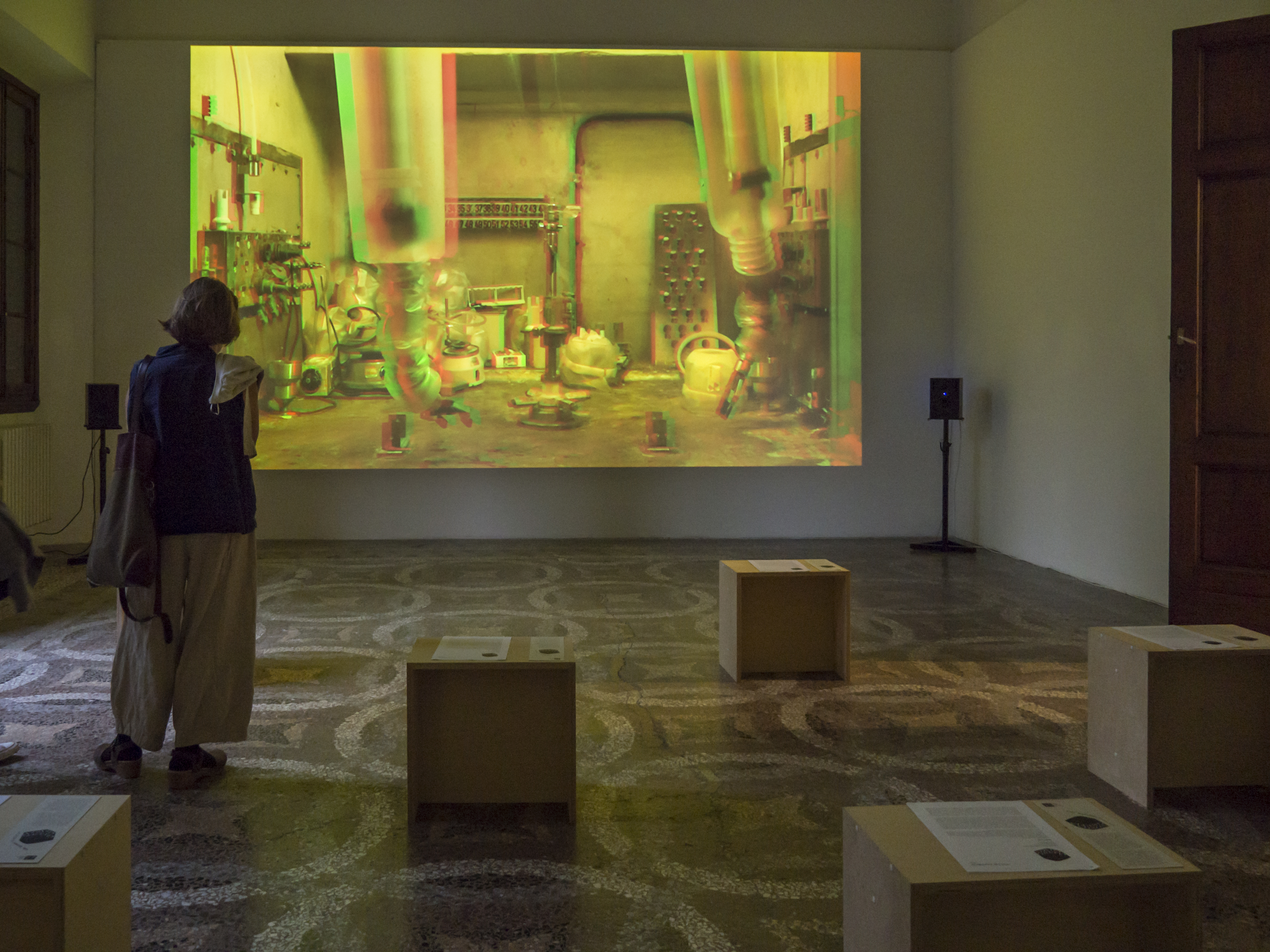CLEPTOCRAZIA
A lecture series + video projection at Villa Romana, Firenze (2021)DOWNLOAD THE ZINEs/SCARICA LE ZINE
13.09- Climate Change
14.09- Degrowth
15.09- Radioactivity
16.09- Extractivism
17.09- Ocean Exploitation
18.09- Epidemics and Pandemics

Functioning as an in-depth tool and a dissemination editorial output to last over the end of the event, TAB designed six different zines and a folder, one per each day of the festival Cleptocrazia, Villa Romana (Florence, 2021). Cleptocrazia is an art and science festival curated by Valeria D’Ambrosio aiming to deepen and disseminate knowledge on the roots of the current environmental crisis due to a form of capitalist, patriarchal and colonialist management of the planet. The fanzines, in paper and digital formats, are the result of the collaboration between Cleptocrazia and TAB to provide lists of multimedial bibliographic sources identified by the artists and the scientists involved in the festival.
CLIMATE CHANGE
13.09.2021The life of human beings is inextricably linked to the environmental context in which it develops, and the consequences of our action on the planet are increasingly evident. Climate change is a topic carrying within itself a series of relations of class, gender, power, wealth and labour connected to a nature that has been radically rethought and modified over a few centuries. The effects of climate change are in fact most evident in what is called Global South, where they act as amplifiers for already-existing crises. From ethnic conflicts to accelerated desertification, from extensive deforestation to increasingly poor subsistence agriculture: these are the contributing causes of the great forced migrations in recent years
DEGROWTH
14.09.2021Five years after the Paris Agreement, CO2 emissions continue to increase while the critical threshold of 1.5°C and 2 °C becomes increasingly stringent. The mitigation scenarios of the Intergovernmental Panel on Climate Change (IPCC) foresee continuous future growth and radical technological changes, with a huge increase in energy efficiency and an unprecedented use of techniques for removing CO2 from the atmosphere. However, it is ever more evident that scenarios of zero growth or slight degrowth for developed countries guarantee a lower risk of not reaching the climate objectives, without relying so indiscriminately on the confidence in large-scale technological development, which seems so difficult to implement in short times. Degrowth does not mean recession but a different distribution of wealth that preserves the well-being of more people
RADIOACTIVITY
15.09.2021The International Energy Agency (IEA) argues that nuclear energy accelerates climate change: it is impactful, risky, anti-economic and has continuously increasing costs compared to renewable energies. On March 11, 2011, the Tōhoku earthquake hit Japan northeastern coast triggering a tsunami that caused the partial collapse of Fukushima Dai-ichi nuclear power plants. That disaster revealed the historical, economic, political and cultural premises of a global nuclear regime, forms of colonization and scientific utopias in a country where animist tradition is closely linked to hyper-modernity. While natural catastrophes, although unpredictable, are an integral part of the relationship between man and nature, radioactivity and its impact on the environment cannot be resolved or integrated into this tradition
EXTRACTIVISM
16.09.2021Extractivism is a form of wealth accumulation based on the depredation of raw materials from the surface of the planet, in its depths and in the biosphere in order to produce financial value. Fundamental logic of the current economic order, the extraction of resources is linked to debt economy, unfair trade agreements and neo-colonial financial domination. Extractivism transforms quarries, forests, rivers and oceans into economic value using any available means including machines, labour, finance, logistics and media. What alternatives to a petro-capitalist and linear economy based on fossil sources and the extract-produce-consume-discard process?
OCEAN EXPLOITATION
17.09.2021Ocean as a multivalent place of geopolitical conflicts, liquid nationalisms, atomic tests, deep sea mining, drilling, unbridled fishing and intensive farming. Inserted in a continuous evolution of stories of colonialism, migration, slavery and environmental transformation, oceans offer us another terrifying portrait of contemporary society. Marine sustainability and human civilization are intrinsically linked as oceans are fundamental for food security, human health, climate regulation and the survival of indigenous traditions. The subsistence of over 3 billion people depends on ocean biodiversity, hence the anthropocentric manipulation of living marine resources, their exploitation and speculation very often have global environmental, geopolitical and sociocultural effects
EPIDEMICS AND PANDEMICS
18.09.2021
The RT number, namely the effective reproduction number, is the calculation of the ability of an infectious disease to spread over a certain period of time. Yet, RT number is not the only parameter by which the progress of an epidemic is assessed, since the numbers of hospital admissions, intensive care, the incidence of new cases and deaths help define the portrait, albeit variable, of an ever-changing infection. In a world impacted by the Covid-19 pandemic, these numbers have changed rules, laws, ways of life and movement of humanity. Numbers serve to simplify complexities and reduce the risks of contagion and mortality rate, but their more or less incorrect interpretation can lead to risks of another nature related to phenomena of public interest such as political conflicts, fake news, conflicting opinions and wrong behaviors
The RT number, namely the effective reproduction number, is the calculation of the ability of an infectious disease to spread over a certain period of time. Yet, RT number is not the only parameter by which the progress of an epidemic is assessed, since the numbers of hospital admissions, intensive care, the incidence of new cases and deaths help define the portrait, albeit variable, of an ever-changing infection. In a world impacted by the Covid-19 pandemic, these numbers have changed rules, laws, ways of life and movement of humanity. Numbers serve to simplify complexities and reduce the risks of contagion and mortality rate, but their more or less incorrect interpretation can lead to risks of another nature related to phenomena of public interest such as political conflicts, fake news, conflicting opinions and wrong behaviors
You can listen to us on #RadioMoka | Novaradio Città Futura together with the curator of the project Valeria D'Ambrosio in the third episode of the column "From the Big Bang to the Anthropocene"








